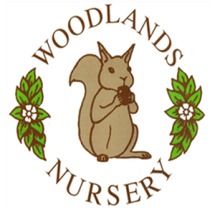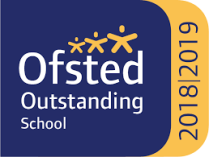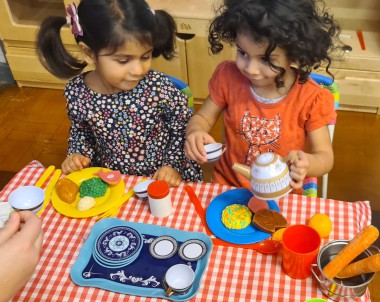OFSTED
Ofsted awarded Woodlands Nursery- Outstanding in December 2018
Click here to read the report- OFSTED Report 2018
"Teaching is outstanding. Qualified staff have expert knowledge of children's individual needs. They provide them with superb opportunities to develop their skills and interests. Children learn through play and are extremely eager to interact with staff and peers"
"Staff keep meticulous risk assessments of the premises, garden and outings to keep children safe. They inspirationally support children in developing safety awareness."
"Staff challenge children's skills. For example, they engage them in a highly entertaining 'Christmas hunt'. Children learn exceptional skills as they work together to follow clues in order to find presents hidden in the garden. Staff are highly confident in promoting children's language. They provide impeccable support for those learning English."
"Staff create a loving environment for children. The key-person system is highly effective, and staff build impressive partnerships with parents. Children are happy and extremely comfortable at the nursery. They form strong bonds with staff and peers. Parents highly praise staff's dedication towards children, who show excellent social skills and flourish."
Learning and Development
Learning and Development
The Areas of Learning are split into 2 sections – Prime and Specific Areas of Learning. Each of these areas are then broken down into more detailed Learning Goals.
PRIME AREAS:
Personal, Social and Emotional Development
Successful personal, social and emotional development is essential for all young children in order for them to achieve in all aspects of their lives. Work in this area focuses on helping children to become independent and to be able to work, play and co-operate with others. We are focused on helping children to develop self confidence, relationships with others and manage their feelings and behaviour.
Communication and Language
Children are encouraged to speak and listen effectively in many situations and are given opportunities to express their ideas, thoughts and feelings. They are introduced to a wide range of stories, rhymes and information books. Work in this area lays the foundations for reading and writing.
Physical Development
Children develop rapidly in their early years. They need to be active in order to develop the fundamental skills associated with moving with confidence and control in order to handle tools and equipment effectively. We aim to develop positive attitudes towards a healthy and active way of life.
SPECIFIC AREAS:
Literacy
As with Communication and Language the children are introduced to a wide range of stories, rhymes and information books. Work in this area lays the foundations for reading and writing.
Mathematics
This focuses on practical activities that help to develop understanding of numbers, measurement, patterns, shape and space. We aim to develop the children’s confidence so that their mathematical skills are used in everyday situations.
Understanding of the World
In this area, children develop the skills they need to help them to understand the world in which they live. They learn about People and Communities, The World and Technology. They learn to be curious, ask questions, experiment and solve problems. Work in this area lays the foundations for later learning in history, geography, science, design and technology and information and communication technology.
Expressive Arts and Design
Creativity brings excitement and independence to learning. Work in this area aims to develop children’s imaginations, encouraging expression of ideas through art, music, dance, role-play and imaginative play.
The Revised Early Years Foundation Stage (EYFS)
What is the EYFS?
The Early Years Foundation Stage (EYFS) was originally launched in 2008. It is the statutory framework for all early years' providers in England.
The statutory framework for the Early Years Foundation Stage sets the standard that all early years' providers must meet. Early year providers in England, who provide care and learning for children from birth to the end of reception class must comply with the EYFS statutory framework.
OFSTED regulate and inspect all early year's providers against the safeguarding and welfare requirements and areas of learning, to determine how well children are kept safe and healthy.
What has changed?
Key message about the reform include:
-Reducing Practitioner workload and needless paper work to allow for more quality time and interaction with the children.
-Improving the outcomes of all children and addressing/reducing the disadvantage gaps.
-The importance of workforce knowledge and professional development to make informed assessments of children.
-Making Early Learning Goals clearer and more aligned to year 1 curriculum.
What does the changes mean to me as a parent/carer?
The safety of your child and the quality of education provided will not change. You may not see any changes in terms of the activities and opportunities on offer to your child. However, you may notice that we are not physically recording as many observations and assessments of progress. Please be reassured that we will still be supporting your child's development and responding to their interests. We will be using our professional judgements to assess your child's development during our daily interactions and activities.
Every EYFS provider has their own bespoke curriculums, to support each child's unique developmental pathway, following their interest and facilitations.
Please see the document attached to his email with information about our curriculum at Woodlands.
Opal- Observation of Play and Learning
This is a model of effective, meaningful and principled assessment of young children's learning.
By effective, we mean a method of assessment that ensures all children are supported in reaching significant milestones.
By meaningful, we mean that the observations inform our everyday practice and curriculum.
By principled, we mean that our focus is on observing to understand children.
We will not spend unnecessary amounts of time writing observations or gathering evidence of children's learning.
We believe that if we are capturing the moment, we cannot be part of the moment.
Spotlights
Children will be assessed during the month of their birthday and six months later.
The children will be assessed in 3 areas:
-Personal, Social and Emotional development
-Communication and Language
-Physical Development
From 36 months they will also be assessed in the areas:
-Literacy
-Maths
Children will be assessed using milestones of typical development for their age.
We will be holding regular Spotlight Assessment Meetings with the whole Early Years Team.
In these meetings, we will have professional discussions about each spotlight child, what comes next for each child and the strategies we will use to support them.
Parent consultations:
You will have an opportunity to have a parent consultation with your child's Key Person following your child's spotlight month.
This is a chance to discuss:
-Your child's interests and current knowledge
-Development in areas of learning
-Next steps
We use an online system called Blossom Educational Ltd. Staff use ipads to record your child's development and progress. Staff complete 2 year old checks and Spotlight Reports these set 'targets' to move the children on to the next stage of their individual learning. Through the Blossom App you will get a 'Daily Diary' this will include information about your child's day including Nappy Changes, Sleep times, Mealtimes etc.




